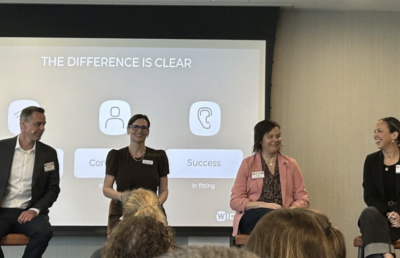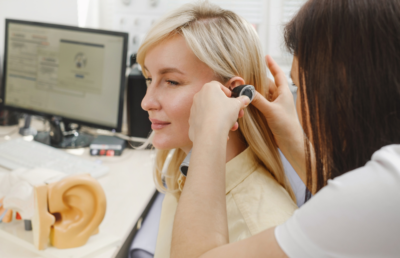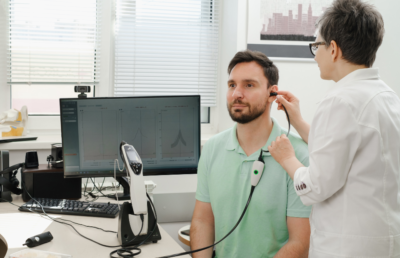Communicating with somebody who has hearing loss can sometimes be challenging for both parties involved. While hearing aids, visual cues, and other active listening techniques can help a person with hearing loss better comprehend speech, others involved can also use communication strategies to facilitate conversations.
From mild to profound, hearing loss has different degrees. tips below can come in handy when you find yourself talking to somebody with hearing loss.
Ensure a Comfortable Environment
Make sure the room is light and bright
People with hearing loss often rely on lip reading, facial expressions, body language, and gestures to better comprehend what’s being said. A shadowy, dark, or dimly-lit room is therefore not ideal for conversations.
Make sure your face is visible
When talking to somebody with hearing loss, make sure your face is visible and not shaded, and that the listener does not have the sun or something else that affects their vision in their eyes. For the same reason, don’t talk from another room. Not being able to see each other when talking is a common reason people have difficulty understanding what is being said. If you’re in a group, make sure that the person with hearing loss has visual access to everyone’s faces — a round-table setting is best.
Reduce background noise
People with hearing loss often find it extra challenging to understand speech in noisy and busy environments. Try to reduce background noise and use a calm and quiet environment for conversations. Turn off the radio, music, the TV, and eliminate other distracting noises.
Other useful tips to keep in mind
- When beginning a conversation, say the person’s name first. This gives them a bit of time to focus their attention on you and reduces the chance that you’ll have to repeat the beginning of the conversation.
- Position yourself close to the person with hearing loss, but not so close that they can’t easily switch focus between maintaining eye contact and speech reading. If you know that the person with hearing loss hears better in one ear, take note of that and try to speak more toward that specific ear.
- Speak clearly, slowly, distinctly, but naturally. While it’s tempting to speak louder, shouting can distort the sound of speech and may make speech-reading more difficult for the person with hearing loss.
- Avoid talking too fast or using sentences that are too complex. Slow down a little, pause between sentences or phrases, and wait to make sure you have been understood before going on.
- Keep your hands away from your face while talking. If you are eating, chewing, or smoking while talking, your speech will be more difficult to understand, and visual cues might be difficult to pick up on. Try not to talk through a yawn.
- When giving specific information, like a name, an address, or time for an appointment, write the important information down or ask the person to repeat the specifics to you so you can make sure they got them right.
- If the hearing-impaired person has difficulty understanding a particular phrase or word, try rephrasing, rather than repeating the original words over and over.
- Pay attention to the listener’s cues. People with hearing loss sometimes feel embarrassed or get tired of asking others to repeat themselves or clarify. A puzzled look may indicate misunderstanding. Ask the person with hearing loss if they understood you or ask leading questions so you know your message got across.
- In group settings, make sure to avoid speaking over each other, as this makes it difficult for the person with hearing loss to focus on what’s being said.
- Don’t talk about a person with hearing loss as if they weren’t there.
- Finally, in the event of a breakdown in communication, you can always ask the person with hearing loss what they need you to do to facilitate better communication and what you can do to help them better understand you.
If you or a loved one are experiencing hearing loss, working with a professional audiologist can be a huge help on your or their journey towards better hearing health. Get in touch with us today!





